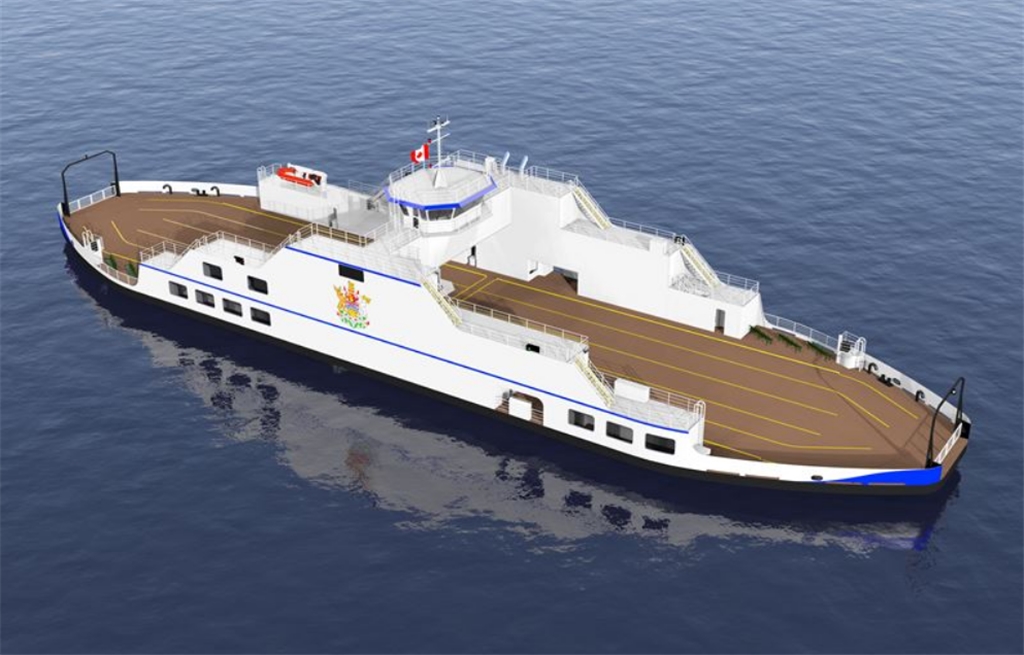The technology group Wärtsilä’s delivery of its advanced hybrid solution will be for a new Ro-Ro ferry being built for the British Columbia Ministry of Transportation and Infrastructure. The vessel is being built at the Western Pacific Marine shipyard, and when delivered will serve the Balfour – Kootenay Bay route across Kootenay Lake. The order with Wärtsilä was placed in January 2021.

By opting for Wärtsilä’s Hybrid Solution rather than a conventional propulsion arrangement, the operator will benefit from reduced fuel consumption and a far lower level of exhaust emissions. The minimised carbon footprint was cited as being extremely important for preserving the pristine environment in which the vessel will operate. An additional benefit is that through reducing the running hours of the engines, maintenance requirements and costs are also lowered.
“Wärtsilä was selected based on their experience, reputation, and know-how in developing, delivering, and supporting complex hybrid propulsion systems. These capabilities are extremely important to us, and we very much appreciate and welcome Wärtsilä’s support throughout this project,” says Graham Clarke, President, Western Pacific Marine Ltd.
“We are proud to be providing the integrated hybrid propulsion solution for the Kootenay Lake replacement ferry, and proud also to be playing our part in preserving the beautiful environment of this interior region of British Columbia. The Wärtsilä Hybrid System is in full alignment with our Smart Marine approach towards raising sustainability levels for our customers. This solution is also upgradable to achieve zero emission operations in the future,” says Dave Adams, Senior Sales Manager, Wärtsilä Canada.
The full scope of Wärtsilä’s supply includes two Wärtsilä 20 generator sets with Selective Catalytic Reduction (SCR) systems, the Wärtsilä’s Hybrid Solution with a DC electrical system and batteries, the energy management system, and the vessel alarm and monitoring system. Wärtsilä will also supply the sewage treatment system and will be responsible for the integration of the various onboard systems. Delivery is scheduled for the second half of 2022.
The 89 metres long double-ended ferry will be capable of carrying 250 passengers and crew, as well as 61 automobile equivalents (AEQs). The British Columbian government already operates two ferries powered by Wärtsilä 20 engines.
The marine industry’s first integrated hybrid power module
By combining its competences in marine electrical, automation and engine technology, Wärtsilä has brought together multiple functions and systems to deliver a single integrated hybrid power module that combines engines, an energy storage system, and power electronics optimised by a unique and highly sophisticated, energy management system (EMS).
The EMS functions as the ‘brain’ in the Wärtsilä Hybrid System optimising the energy flows between the different power sources, storage and consumers to achieve the highest efficiency possible.